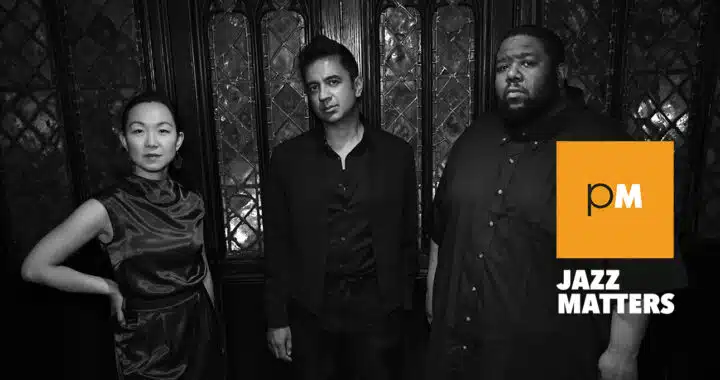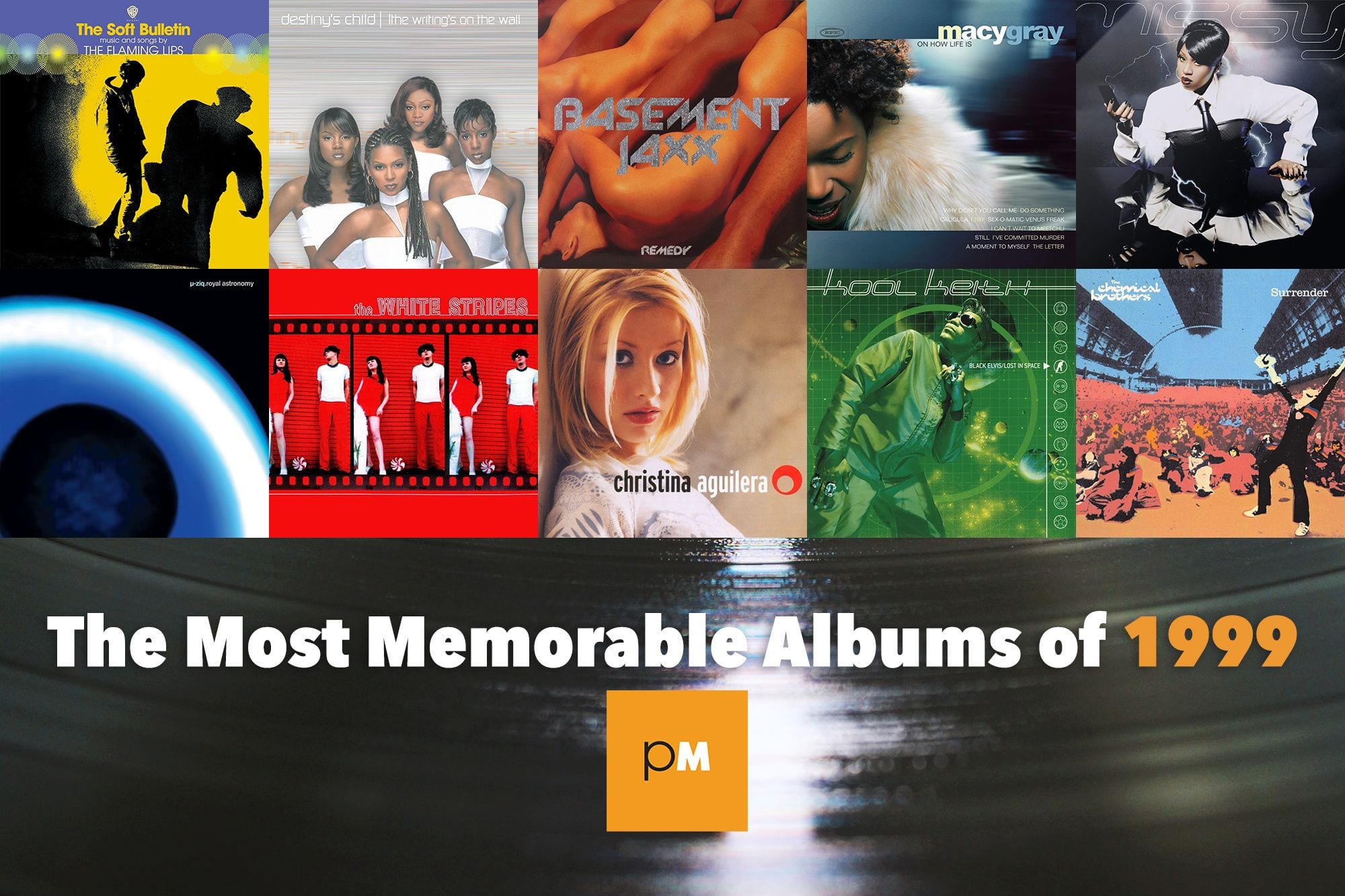
JazzMatters: The Best New Jazz of Winter 2024
PopMatters presents the best new jazz recordings from the winter of 2024 and reflects on the relationship of the Grammys to jazz.

PopMatters presents the best new jazz recordings from the winter of 2024 and reflects on the relationship of the Grammys to jazz.

In these challenging times, the best R&B and soul albums walked tall and carried a big stick, while also being a much-needed balm and source of warmth.

Meshell Ndegeocello always creates a mood around the music that puts rhythm, harmony, and melody in delicious orbits. This is a real genre-crossing soul album.

With every "Best of the '90s" retrospective comes a predictable list of entries. Here are 15 albums that are often overlooked as worthy of placing in these lists, and are too often underrated as some of the best records from the decade.

Part three of the Most Memorable Albums of 1999 sports the debuts of the White Stripes, Beyoncé, and Christina Aguilera and stellar electronic music from Basement Jaxx, the Chemical Brothers, and µ-Ziq.

From tech house to Radiohead and Americana to indie and everything in between, the 60 best albums of 2007 included many of the 2000s' best albums.

PopMatters turns 20 years old this October and we're beginning to celebrate our history by taking you back in time a decade ago. Obama was in the White House and the musical times were very good indeed. Revisit 2009 through its best albums.

On Ventriloquism, Meshell Ndegeocello covers classics and stays true to her superb artistic sensibilities.



Recording and releasing a covers album is a tricky situation. You basically have to have a new enough spin on old classics to stamp your own personal brand on them in order for the whole thing to be successful. Or, you have to choose numbers that are more obscure, so most people will be listening to your version before they hear the original — thus associating the song with you. This is the case with Whitney Houston’s version of “I Will Always Love You” — a track that due predominantly to her untimely death is now disrespectfully considered to be more hers than Dolly Parton’s, even though it was still widely successful in its original form. So, when you decide to record a tribute album, you are essentially making an even more precise and focused version of a covers album — honing in on one artist’s repertoire and leaving yourself vulnerable to a plethora of justifiable comparisons. However, if there’s any musician out there versatile enough to hold down all the demands of making a truly mesmerizing and significant tribute album, it’s the supremely talented Meshell Ndegéocello.
Unfortunately, not even Ndegéocello can completely save an unforeseeably misguided tribute album of the late, great Nina Simone — an equally talented musician. Pour une ame souveraine – A dedication to Nina Simone is an awkward beast for a few reasons. Nina Simone, by the nature of being a jazz artist often covered fairly recognizable tunes by other famous artists, such as “Suzanne” by Leonard Cohen. So, in essence, you’re hearing Meshell Ndegéocello doing Nina Simone doing Leonard Cohen–the whole thing gets very surreal, very quickly, and not always in a good way.
Beginning with the slow groove “Please Don’t Let Me Be Misunderstood”, Pour une ame souveraine shimmies itself through with the comforting sounds and warm melodic structures that we’ve come to know from Ndegéocello. Someone unfamiliar with Nina Simone;s catalog wouldn’t blink twice about this being a new album of original material. It’s when “Suzanne” begins that you begin to question the motives and rationale for such a tribute album, especially considering that Ndegéocello’s version is almost note for note the same as the faster tempo version of Ms. Simone’s. It’s nice enough but doesn’t add anything to either Ndegéocello’s abilities other than to point out that “hey, Meshell can do this song too!” It’s perplexing.
As Pour une ame souveraine marches on it becomes increasingly clear that Ndegéocello is not interested in re-interpreting these tunes to suit her own personal and unique musical sensibilities — besides effecting her mesmerizingly seductive baritone voice. And even at that, Ndegéocello is not the lead vocalist on all the tracks. One-third of the tunes are sung almost predominantly by guest vocalists. Every guest vocalist featured here (Toshi Reagon, Lizz Wright, Valerie June, Cody ChesnuTT, and Sinead O’Connor) does a fine job with the material they’re given, but you have to wonder why a full-blown various artists tribute record wasn’t fashioned here — probably because Ndegéocello wanted more control over the project.
Ultimately, Pour une ame souveraine is a pleasant enough album and there isn’t anything here that would qualify as a fail, but cohesively speaking, it feels more like an unnecessary musical venture that is really more about self-indulgence in playing the music of a respected mentor than producing something truly significant. Most of Ndegéocello’s versions are quite similar to their originals, which is the real disappointment. In almost all of Ndegéocello’s covers you get the sense that she has managed to muddle her fingers into the interior structure of the song and recreate something from the ground up — giving the piece a unique and unexpected soulful spin. But when the source material has soul coming out of its bottom, there really is very little that Ndegéocello can do here that hasn’t been done prior. Even her wonderful version of “Feeling Good”, which is essentially a slowed-down version of the same arrangement Simone gave it all those years ago, minus the occasional vocal melody recreations, feels a little limp. It’s nice and would have made for a wonderful and standout inclusion in a sea of other artists interpretations of the Nina Simone, but juxtaposed against other Ndegéocello renditions, it’s flat.
While Pour une ame souveraine continues Ndegéocello’s trend to over-collaborate with a mountain of other equally talented musicians, unlike her original offerings (see Weather or Devil’s Halo), this Nina Simone dedication is fairly disappointing. There was room here for some “wow!” moments with such a brilliant artist covering such a culturally significant icon like Nina Simone. It could have been bursting at the seams with funk and soul and reimaginings that channeled the spirit of Ms. Simone. Instead, it feels a little slack and underdeveloped to be as truly affecting as I’m sure Ndegéocello is intending. And, I don’t believe anyone would have predicted this kind of outcome.